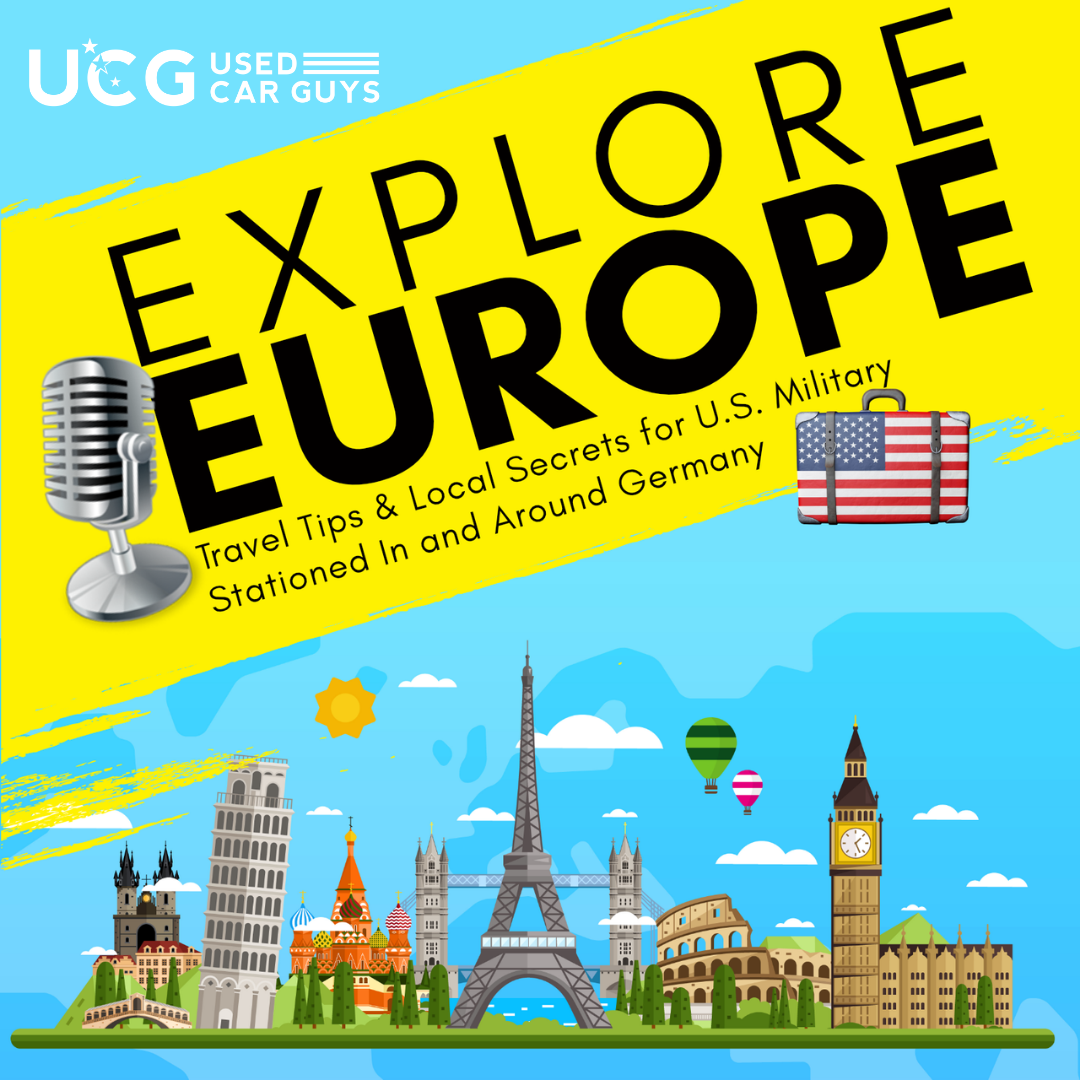[014] The Mont Blanc Trail
Description
Explore Europe Mont Blanc Trail Podcast Episode Show Notes
The Tour du Mont Blanc is a unique trek of approximately 200km around Mont Blanc that can be completed in between 7 and 10 days passing through Italy, Switzerland and France. It’s one of the most famous and exhilarating treks in Europe. Hikers, climbers and mountaineers will love the authenticity of the overnights offered by mountain refuges and gites along the Tour du Mont Blanc.
Our special guest, Kaiserslautern school music teacher Gretchen Lynch, explains that you do not need to be a hardcore mountaineer to do the Mont Blanc Trail. She shares her short version of the trail with us along with all of her tips that will ensure even total beginners to hiking can accomplish this unforgetful bucket-list trek.
Here are some detailed notes and links from our Explore Europe Mont Blanc Trail episode:
Website about Tour: http://www.autourdumontblanc.com/en/
What to bring - everything fits fine in a 30L backpack from Decathalon.
fold up hiking poles
lightweight gloves and hat
sleep sack, sleep clothes
poncho
2 pairs of hiking shorts and shirts
long sleeved micofiber shirt
light fleece
Sunscreen & bugspray
toiletries, microfibre towel
gallon ziplock bags to keep clothes dry in case it rains
YakTrax or crampons if you hike early in the season for the snow crossings
ear plugs
good hiking shoes
flip flops if you don’t want to wear the ones provided (I brought them but they were not necessary!)
cell phone and charger, - get one that works in Switzerland
hydration bladder or water bottles
Pack light - you are carrying everything!
Entire tour takes about 2 weeks. We did half of the tour, but took a bus through the mountain from Chamonix France to Courmayeur Italy to cut our tour to one week. The bus is just 15 Euro per person.
We parked near the trail’s end in Chamonix. It was free and so nice to come out right near our car when we finished a week later!
We put our kids in camp so we could do this as a couples trip (we went with another couple whose daughter stayed with family friends.) Germany’s sleepaway camps are very affordable compared to the United States. We have been very happy with Camp Adventure which offers one and two week sessions and is a bilingual camp, so everything is in both English and German. https://www.campadventure.de/en/
Each day you hike about 6 hours and then stay in a refuge. Refuges are like hostels, but they are on the hiking route (many high in mountains and must be stocked by donkeys or helicopters!) and almost always provide breakfast and dinner. For about 10 Euros you can also buy a sack lunch for your hike. Price per night ranged from 41 (and that one was our favorite!) to 70 Euros per person.
We hiked through three countries - starting in Italy, then Switzerland, and finished in France. The main language on the train was French, even in Italy. We didn’t hear German at all! The refuges all had English speaking staff and most of the hikers also spoke English.
Other than lodging, our only costs on the trip were gas (we filled in Germany near the border and didn’t have to refuel til we got back home), the 15 Euro bus ticket, lunches (either 10 sack lunches from the refuges or purchased from grocery stores along the route), coffees along the route, and wine/ beer at the refuges. Beer was pricey compared to Europe - about 7 Euros for a half litre, 4 for .33 litre. House wine was about 8-12 for a half litre carafe to share at dinner.
Make sure you take out both Francs (get at an ATM on the drive down) and Euros and have enough cash to pay for both your lodging - they almost always only take cash - and your lunches/ snacks/ drinks. You can pay in Euros in Switzerland but you will get a bad exchange rate - like Euro for Dollar.
BOOK YOUR TRIP IN ADVANCE. We made the mistake of waiting too long and some of the refuges were ful
More Episodes
Explore Europe Christmas Markets Podcast Episode Show Notes
Is there anything better than living in Europe and especially Germany at this time of year. Nothing says Christmas quite like the traditional Weihnachtsmarkt that you will find in every big city, small town and even the tiny...
Published 12/07/18
Published 12/07/18
Explore Europe Dresden Podcast Episode Show Notes
Dresden is the capital of the German state of Saxony. It's situated in a valley on the River Elbe, near the border with the Czech Republic and was part of the former East Germany until reunification in 1990.
The city has experienced dramatic...
Published 11/25/18


